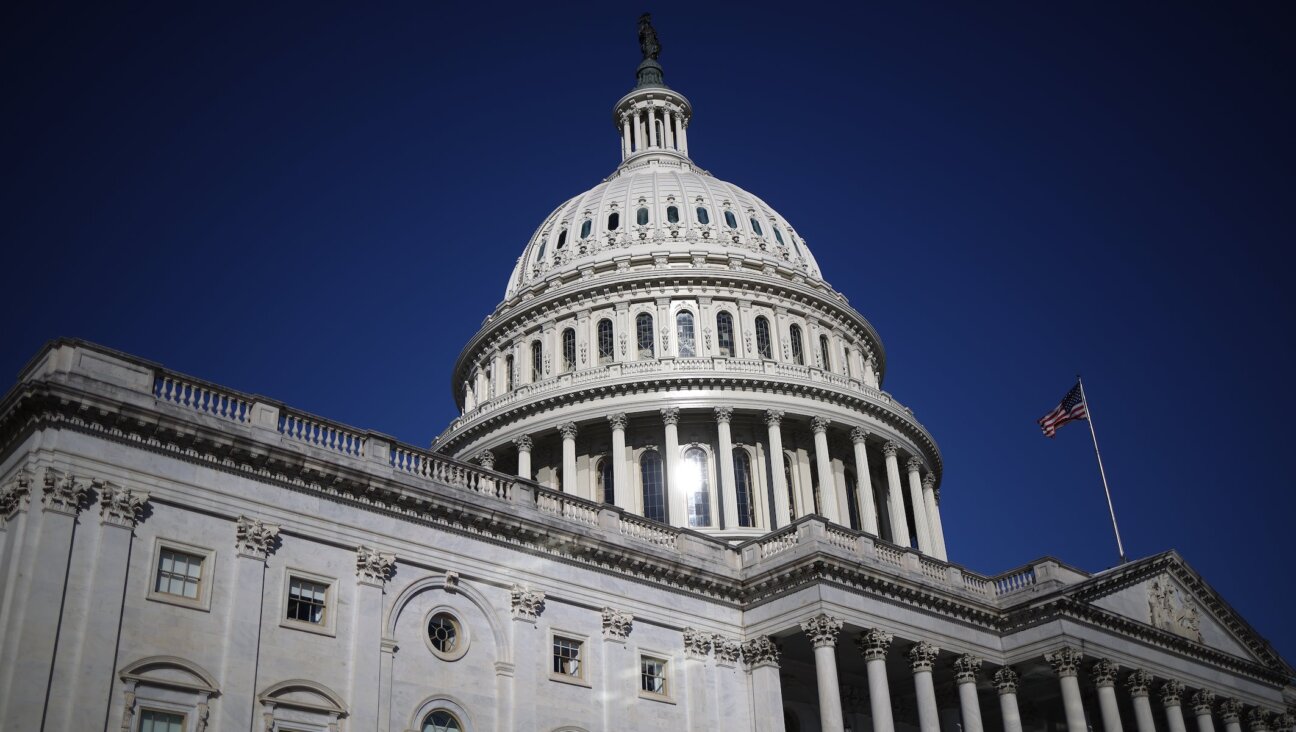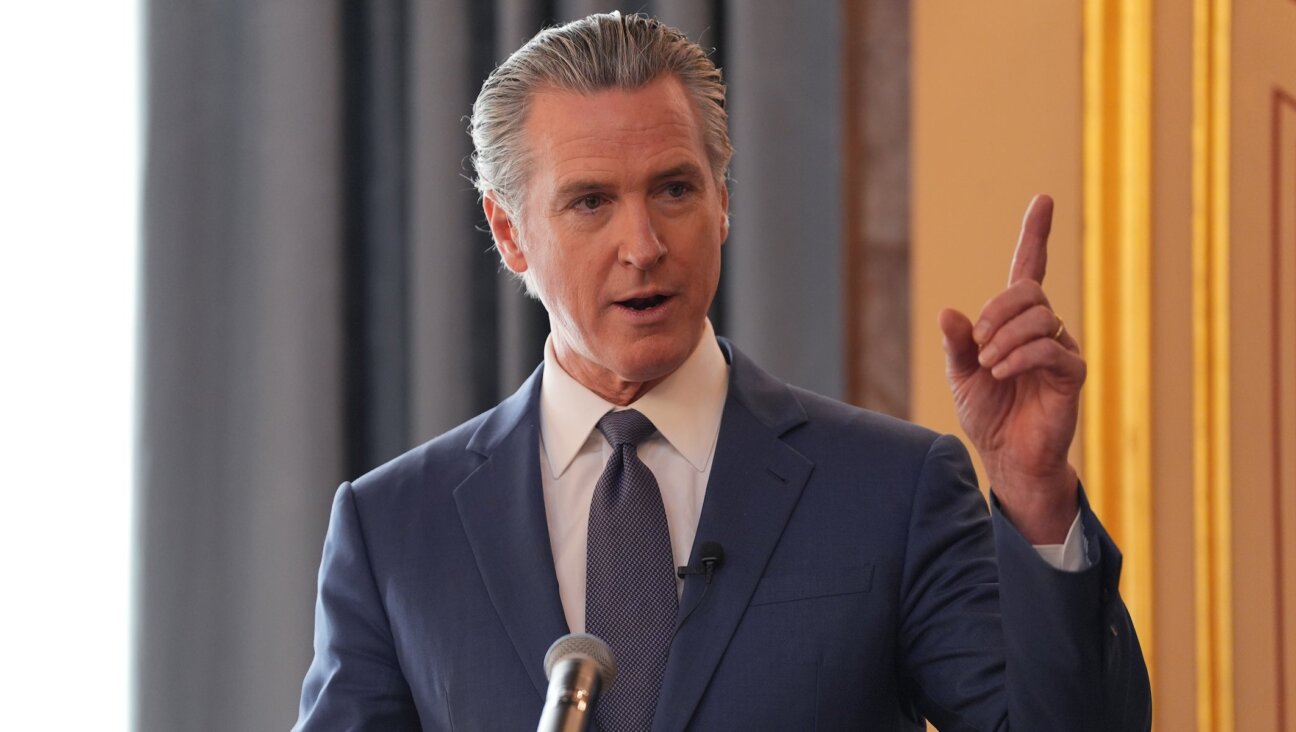New Insurance Law To Protect Victims of Hate Crimes
OLYMPIA, Wash. — Hate-crime victims here no longer need to worry about losing their insurance, thanks to a new state law proposed and pushed by Jewish organizations. The measure prohibits insurance companies from canceling or not renewing coverage on property targeted in hate crimes.
The new law, which applies to individual and institutional policyholders, was the brainchild of the Jewish Federation of Greater Seattle and the Anti-Defamation League’s Pacific Northwest regional office. The ADL’s Washington, D.C., counsel said that the organization may push for similar measures in other states while working to pass state and federal hate-crime laws.
While no institutions or individuals are believed to have lost their insurance in Washington, local synagogue and mosque leaders say that they have been reluctant to file reports involving acts of vandalism or other possible bias attacks for fear that their insurance coverage would be canceled.
“We looked at the law and determined that there were protections against rate increases, but there was no protection from an insurance company just canceling or not renewing coverage on an institution or an individual because they had been a victim of a hate crime,” said the ADL’s Pacific Northwest regional director, Brian Goldberg, whose office helped craft the legislation. “We found this loophole in the Washington state law and decided to be proactive.”
The new Washington law comes on the heels of similar measures passed during the last two years in California and Illinois. The California law was approved after an insurance company refused to renew the policy of one of three Sacramento-area synagogues hit by hate-motivated arson attacks in June 1999. In contrast to the California law, which only applies to institutional property, the Illinois and Washington statutes also protect individuals from losing their insurance.
Goldberg told the Forward last week that his office first became interested in the issue after Jewish organizations in the Pacific Northwest began calling to complain that following the September 11 attacks, some insurance companies were attaching anti-terrorism riders to insurance policies. As a result, Goldberg suggested, hate crimes could have possibly been classified as “domestic terrorism,” thereby jeopardizing coverage.
Under the new law, companies are required to report to the state insurance commissioner any action taken against a policyholder who has filed a claim in the preceding five years due to an incident that police have classified as “malicious harassment,” the legal term for a hate crime.
The Washington law does not deal with the cost of insurance, which is already regulated.
Known as Substitute House Bill 1128, the law received support from Seattle’s Idriss Mosque, the Washington Association of Churches, the Lutheran Public Policy Office of Washington, the Washington State Catholic Conference and the Washington chapter of the National Organization of Women. The Office of the Insurance Commissioner of Washington State asked legislators to vote for the bill, which passed both houses in unanimous votes last month and was signed into law by Governor Gary Locke May 7.
“Even though no Washington citizen has been denied insurance coverage or had their coverage canceled because they’ve filed insurance claims for damages caused by hate crimes, we know that hate crimes occur,” Locke said in a written statement. “We want to make sure any future victims aren’t penalized for malicious acts they did not cause.”
The law’s main backers in the legislature were State Rep. Shay Schual-Berke, a Democrat, and State Senator Don Benton, a Republican.
“This bill stands out as really a shining light for the right thing to do, and this legislature decided to do it unanimously,” Schual-Berke said just before the signing ceremony in the governor’s office last week. “It really shows vision and concern and compassion for everyone who lives within the borders of Washington state, and it’s something we can all be extremely proud of.”
The Jewish Federation of Greater Seattle’s government affairs director, Remy Trupin, sought out supporters for the bill in the state capital. He said that Schual-Berke “expressed a lot of interest in it, and then, given that she was the chair of the committee it would have to go through” — the financial institutions and insurance committee — “it was just a perfect fit.”
While Trupin lobbied legislators, the ADL cultivated support for the bill among other religious groups.
Goldberg said that ADL approached Hisham Farajallah, director of Seattle’s Idriss Mosque, about supporting the bill. According to Goldberg, Farajallah presented it to the Muslim community, who “got behind it and were very, very active in getting their members to call their legislators and to put pressure on and to really be vocal and public in support of this legislation.”
“We didn’t discuss contentious issues like the Israeli-Palestinian issue — we would probably disagree on that,” Goldberg said. “But on this issue there was no disagreement, and it really shows that if we were able to work together on this issue, there are other issues we can work together on as well.”
Farajallah — who sent a letter to Schual-Berke’s committee describing post-September 11 hate attacks on mosques and expressing concern about losing coverage — said last week that the new law was “a great victory for all.” He noted that while it is impossible for people to agree on everything, “we can capitalize on those things that we can agree on.”
Supporters of the bill fought off an attempt to alter the legislation, according to Diane Baer, chair of the ADL Pacific Northwest region’s government affairs committee. To discourage fraud, insurance-industry advocates proposed requiring that cases of malicious harassment be officially designated as such by law enforcement in order for policyholders to benefit from the bill’s protection. But this change was opposed by supporters of the bill on the grounds that police investigations could take as long as 18 months. The insurance lobby eventually backed down.
Baer was among those who testified before the House financial institutions and insurance committee in January. She stressed the need for a law that would guarantee continuing insurance coverage for property targeted in hate attacks. Also testifying before the committee was Leon Reisberg, president of the board of trustees of Tacoma’s Temple Beth El, who noted that of the 12 hate attacks perpetrated against the temple since 1999 — including spray-painted graffiti, attempted arson and shots fired at the building — eight had resulted in property damage. But, he said, the temple had been reluctant to file claims.
The fear of insurance cancellation, Reisberg declared, was genuine. “It’s not hypothetical,” he said. “It’s a real concern.”















